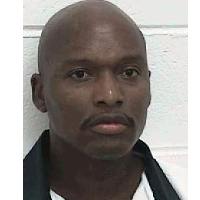Georgia Uses Secrecy Law to Obtain Lethal Drug for Execution of Mentally Disabled Prisoner
 Warren Hill (photo: Georgia Department of Corrections)
Warren Hill (photo: Georgia Department of Corrections)
The state of Georgia has used a new secrecy law to hide the identity of the company that would supply the lethal injection to a mentally disabled inmate who is fighting his planned execution.
The execution of Warren Hill, 52, was blocked for the time being by Superior Court Judge Gail Tusan after Hill’s attorney claimed in a court filing that his client’s rights were violated by the Lethal Injection Secrecy Law, which makes the identity of the suppliers of the sedative pentobarbital a “state secret” to thwart protesters from boycotting such businesses.
Hill’s attorney argues that blocking the name of the drug supplier leaves his client “with no means for determining whether the drugs for his lethal injection are safe and will reliably perform their function, or if they are tainted, counterfeited, expired or compromised in some other way.”
The Georgia state courts will now reconsider Hill’s case on Thursday, which could wind up before the U.S. Supreme Court if the execution is put back on schedule.
The nation’s highest court ruled in 2002 that the judicial killing of “mentally retarded” people was unconstitutional.
Nine medical experts have examined Hill over the years and all of them concluded he is intellectually disabled. Three of those experts reversed their original opinion of 2000—that Hill was faking retardation—which had been a key contributing factor to sentencing Hill to death. They now claim that they had been rushed in providing their opinions, and that medical understanding of mental disabilities has since evolved.
Hill’s legal team had submitted his case to the Supreme Court, which offered to consider it this September. If the execution is placed back on schedule—which requires it take place prior to noon on Saturday—it is not known how the Supreme Court would respond or if another stay would be granted.
Hill was placed on death row after beating another inmate, John Handspike, to death with a nail-studded board in 1990 at the state prison in Leesburg. At the time, Hill was serving a life sentence for shooting his 18-year-old girlfriend to death in 1985.
A few days before Judge Tusan blocked the execution, it was reported that Georgia had been struggling to obtain a new supply of pentobarbital after its existing stock of the drug expired in March. A new supply was found at an unidentified compounding pharmacy in another state, and the Georgia Attorney General’s office released a document showing that the drug was tested on July 10 and passed with flying colors. “We’ve proven there’s not going to be any kind of harm” caused by the drug—presumably other than causing death—Senior Assistant Attorney General Sabrina Graham told Judge Tusan.
Hill’s attorney balked at the claim because the names of the lab and the drug tester were redacted, in keeping with the Secrecy Law. There is therefore no way to know if the lab and the supplier are reputable and, therefore, if the drug presents “an intolerable risk of pain and suffering,” stated the team’s legal motion.
Hill’s reprieve, the third one he has been granted in the course of a year, was delivered three to four hours prior to the scheduled time of his execution.
-Danny Biederman, Noel Brinkerhoff
To Learn More:
Georgia Inmate Warren Hill Granted Last Minute Stay of Execution (by Ed Pikington, The Guardian)
Fulton Judge Stays Warren Hill’s Execution (by Rhonda Cook and Bill Rankin, Atlanta Journal-Constitution)
Georgia Scrambles for Fresh Supply of Drugs to Execute Death Row Inmate (by Ed Pikington, The Guardian)
4 States Pass Laws Hiding Names of Suppliers of Death Penalty Drugs (by Noel Brinkerhoff, AllGov)
States Scramble for Execution Drug as Other Countries Balk (by Noel Brinkerhoff, AllGov)
Drug Company Halts Production of 1 of 3 Execution Drugs (by Noel Brinkerhoff, AllGov)
- Top Stories
- Unusual News
- Where is the Money Going?
- Controversies
- U.S. and the World
- Appointments and Resignations
- Latest News
- Trump Orders ICE and Border Patrol to Kill More Protestors
- Trump Renames National Football League National Trump League
- Trump to Stop Deportations If…
- Trump Denounces World Series
- What If China Invaded the United States?






Comments